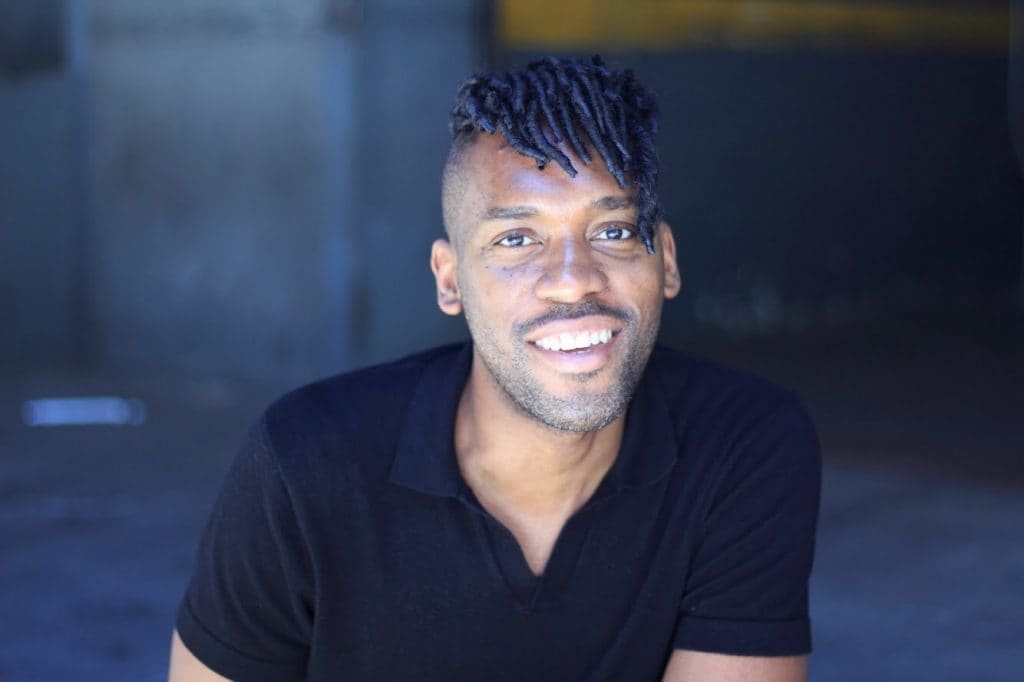A year into the novel coronavirus global pandemic and we have seen the toll that it’s taken on the medical industry. There were cases of nurses and doctors who were so overwhelmed by constant surge in deaths that they left the profession. Focus in on Black medical professionals and the numbers are staggering. A 2018 Association of American Medical Colleges (AAMC) survey completed found that Black doctors make up about five percent of active physicians.
Dr. Dale Okorodudu, a Dallas-based Pulmonary & Critical Care physician, is trying to spearhead change and get young people of color interested in the profession through his “Black Men in White Coats” organization. The organization founded in 2013 started as a wake up call after the AAMC published an alarming report highlighting that the already low enrollment of Black male applicants to medical school was decreasing. Dr. Okorodudu took charge and created the organization to provide exposure, inspiration, and mentoring to young Black men.
“There’s this belief that as a Black male that you can’t go talk to a Black man physician but Black Men in White Coats is helping to shatter that belief,” Okorodudu tells theGrio.
The mission began with getting more Black men into the medical profession, but through the years has expanded to include summer enrichment camps for children. “We wanted to say whatever your white coat might be, and it doesn’t necessarily have to be a doctor, but we want to help by showing positive examples,” says Okorodudu.
Read More: Black doctor’s suit against Tulane points to medical industry’s racism problem
It was important for the men involved in Black Men in White Coats to provide lasting examples to young people, but the organization’s first mission remains the same: to help young Black men who might be interested in the field of medicine achieve that goal.
“There’s certain ways that culture can make the African American male look bad, whether it be through videos or movies, but the reality of the situation is less than five percent of Black males are in prison, media, or entertainment. The vast majority of us are out doing other things,” says Okorodudu.
Okorodudu says the profession in the past wasn’t always a safe place for Black people. The AAMC in recent years has spoken out against forms of racism that might have played a factor in why so little people of color were applying and getting into medical schools.
In February 2021, the Association of American Medical Colleges President and CEO David J. Skorton, MD, and Chief Diversity and Inclusion Officer David A. Acosta, MD, released a joint statement saying, “Historical and contemporary examples of anti-Black racism continue to impact our Black medical students, residents, researchers, and faculty in academic medicine. The AAMC remains committed to addressing and dismantling racism within our association, in academic medicine, and in society.
However, in recent years the medical profession and doctors have found a place in pop culture with the popularity of shows like Married to Medicine on Bravo. The show that started in Atlanta follows the lives of a group of women, some doctors and others married to doctors, and has generated a huge following. The show now in its eighth season has grown in viewers and is arguably the best television show in the genre. That popularity propelled Bravo to extend the show to the city of Los Angeles.

Read More: Black doctors combat COVID-19 misinformation on Clubhouse
Dr. Jackie Walters, a cast member of the Atlanta franchise, tells theGrio that the popularity of the show has gotten people interested in medicine. “We are inviting people into our lives through the show so they get to see us in the white coat and at home,” Walters says.
But with reality TV comes drama, which in some cases can overshadow the greatness behind a show like Married to Medicine, where the cast is majority people of color in a landscape that often doesn’t look like them. That kind of representation can’t be bought and for Walters she understands that.
“I grew up in Fayette, Mississippi and there were not a lot of doctors who looked like me. So early on I knew that I wanted to be doctor but I didn’t exactly know if I could achieve it,” she says.
That achievement is why Dr. Okorodudu and his team of Black doctors who make up Black Men in White Coats are overly compassionate about developing young minds to go out into the world and succeed.
“Don’t let other people set your expectations, set your own expectations and set them high,” he tells theGrio. He also added, “I think one of the big issues we face as a minority community is that people feel they need permission to be great. You don’t need permission because you already have permission to be great–people are scared to know what will happen if they give it their all.”
For more information on Black Men in White Coats visit their official website: https://www.blackmeninwhitecoats.org/

Kelsey Minor is a 2x Emmy award-winning freelance journalist based in New York City. You can follow his stories on Twitter @theKELSEYminor.
Have you subscribed to theGrio’s new podcast “Dear Culture”? Download our newest episodes now!
TheGrio is now on Apple TV, Amazon Fire, and Roku. Download theGrio today!
Loading the player…
Share
